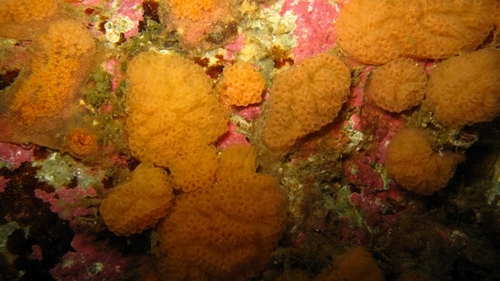The collaborative project PharmaSea will bring European researchers to some of the deepest, coldest and hottest places on the planet. Scientists from the UK, Belgium, Norway, Spain, Ireland, Germany, Italy, Switzerland,Denmark and China will work together to collect and screen samples of mud and sediment from huge, previously untapped, oceanic trenches.
The large-scale, four-year project is backed by more than €9.5 million of EU funding and brings together 24 partners from 14 countries from industry, academia and non-profit organizations, including scientists from Institute of Microbiology, Chinese Academy of Sciences. Prof. ZHANG Lixin is the leading scientist in IMCAS. His research is to discover and develop synergistic medicines from marine microbial natural products. He serves as a chief PI for a 973 program and was recognized in 2011 as an Awardee for the National Distinguished Young Scholar Program, China.
The PharmaSea project focuses on biodiscovery research and the development and commercialization of new bioactive compounds from marine organisms, including deep-sea sponges and bacteria. The international team of scientists is led by Prof. Marcel Jaspars of the University of Aberdeen in Scotland, and coordinated by Dr. Camila Esquerra of the University of Leuven in Belgium. Prof. Marcel Jaspars received CAS Visiting Professorships for Senior International Scientists and worked in Prof. ZHANG’s laboratory for 3 months in 2012.
Marine organisms that live more than 2,000 meters below the sea level are considered to be an interesting source of novel bioactive compounds as they survive under extreme conditions.One of the aims of PharmaSea is to discover new marine bacteria that can produce novel antibiotics, "There’s a real lack of good antibiotics in development at the moment. There hasn’t been a completely new antibiotic registered since 2003. If nothing’s done to combat this problem we’re going to be back to a “pre-antibiotic-era" in around ten or twenty years, where bugs and infections that are currently quite simple to treat could be fatal", says Marcel Jaspars.
Only a handful of samples have ever been taken from deep trenches and investigated, so the project is breaking new ground. "With our broad platform of cutting-edge bioassays to detect drug-like activity, we'll be testing many unique chemical compounds from these marine samples that have literally never seen the light of day ", says Dr. Camila Esguerra.
The international team will employ strategies commonly used in the salvage industry to carry out the sampling. The sediment will be collectedby fishing vessels. Scientists will then attempt to grow unique bacteria and fungi from the sediment. Partners from China, Chile, Costa Rica, New Zealand and South Africa will support the PharmaSea project. The first field tests will be carried out next autumn in the Atacama Trench in the Eastern Pacific Ocean. The team will also search the Arctic waters off Norway and the Antarctic via Italian and South African partners. Deep trenches will also be accessed off China and New Zealand.

Colourful Sea Squirt Cold water Ascidiaceae, a Botryllus Specie (Copyright: Kirsti Helland, Marbio, University of Troms, Norway)

Arctic Collection in 2009 with Project Leader Marcel Jaspars (Copyright: Marcel Jaspars, University of Aberdeen)
